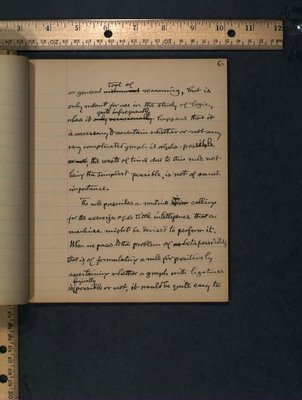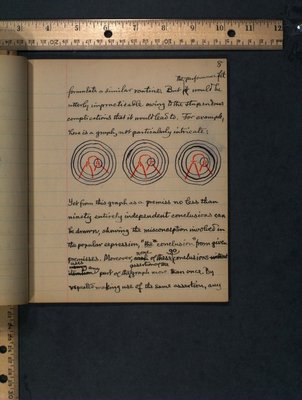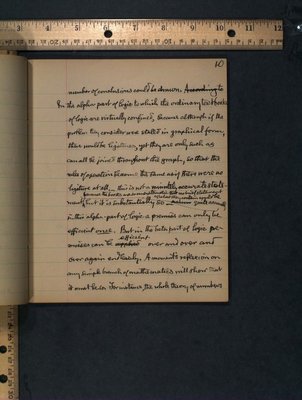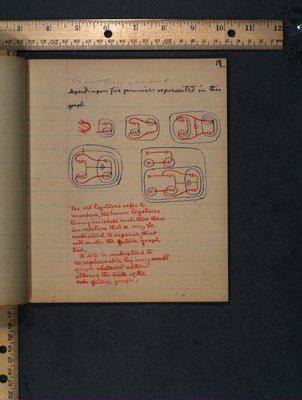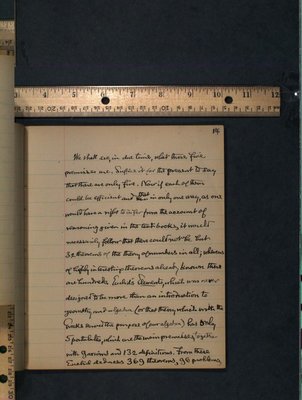Pages
6
or general tool of reasoning, but is only meant for use in the study of logic, where it quite infrequently happens that it is necessary to ascertain whether or not any very complicated graph is alpha-possible the waste of time due to this rule not being the simplest possible, is not of much importance.
The rule prescribes a routine calling for the exercise of so little intelligence that a machine might be devised to perform it.
When we pass to the problem of beta possibility that is, of formulating a rule for positively ascertaining whether a graph with ligatures is logically possible or not, it would be quite easy to
7
formulate a similar routine but the performance of it would be utterly impracticable owing to the stupendous complications that it would lead to. For example, here is a graph, not particularly intricate:
[3 blue and red circular drawings]
Yet from this graph as a premiss no less than ninety entirely independent conclusions can be drawn, showing the misconception involved in the popular expression, "the" conclusion "from given premisses. Moreover, none of these 90 conclusions uses any part of the assertion of the graph more than once. By repeated making use of teh same assertion, any
8
member of conclusions could be drawn. In the alpha-[pair?] of [logie?] to which the ordinary [travelbooks?] of logie are virtually confined, because although if the [proffein?] they consider were stated in graphical form, there would be [ligateuses?], yet there are only such as [cau?] all he joined throughout the graph, so that the rules of observation became the same as if there were no [legisture?] at all, this is not a minutely acurate statement because the [folks?] are so [empithetical?] that no brief statement of useful they [emotion?] [under the?] [hurt?] it is substaintially so [might?] [quite?] [account?] for this alpha part of logic a [premisis?] can only be efficient once. But in the beta part of the logic [premisis?] can be efficient over and over and over again endlessly. A [moment?] is [reflection?] on only simple [breach?] of mathematics will show that it must be so. For instance, the [while?] theory of members
9
19
The short theory of numbers depends upon five premisses represented in this graph
[Five graphs drawn with the letters u, x and possibly the number 0 and red lines]
The red ligatures refer to numbers, the brown ligatures to any universe such that there is a relation that u may be understood to express, that will make the entire graph true.
X is to understood to be replaceable by any moved graph whatever without altering the truth of the entire graph.
10
We shall see, in due time, [where?] these five premises are. Suffice is for the [present?] to say there are only five. Now if each of them could be efficient and that in only on way, as one would have a night to infer from the account of reasoning given in the [leach?] books it would neccesarily fathom that these could no be [but 3q?] theorums of the theory of members in all; whereas of highly in [leadership?] themselves already beknown there are hundreds. [Eurlids?] Elements, which was never designed to be more than an introduction to geometry and algebra (or that theory with which the [necks?] served the purpose of our algebra) has only 5 [potentials?] which one [theorum?] [presides?] together.
